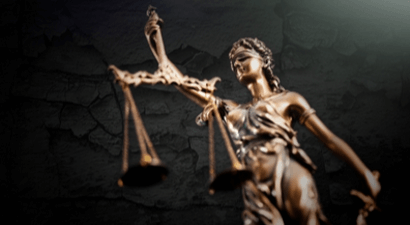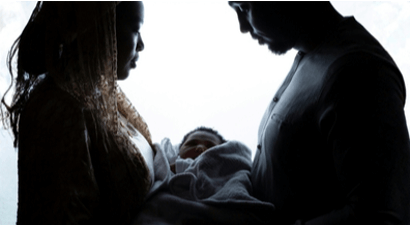WHEN TWO ELEPHANTS FIGHT, IT IS THE GRASS THAT GETS TRAMPLED
“When two elephants fight, it is the grass that gets trampled.”
African Proverb; South African Reality
On 5 April 2023 Eskom was brought before the High Court in Johannesburg to explain its approach to Rural Maintenance Free State (Pty) Limited’s use of a privately owned PV solar farm to keep critical infrastructure of water and sanitation powered during loadshedding and to help alleviate the effects of blackouts for businesses and residents of the town of Frankfort in Mafube, Free State Province.
Rural Maintenance (Pty) Limited, in terms of a contract with the Mafube Local Municipality manages and operates the municipal electricity distribution network. In terms of an agreement with Eskom, Rural Maintenance has been implementing self-loadshedding in Frankfort where Rural Maintenance effectively substitutes Eskom’s electricity (or lack thereof) during scheduled loadshedding with alternative energy generated by the solar farm. This allows certain groups of electricity users within Frankfort to remain powered-up during loadshedding thus alleviating the dire consequences of rolling blackouts with no impact grid on stability.
Eskom granted the request for self-loadshedding in January 2023 subject to a three (3) month trial period, which would be reviewed by way of monthly reporting by Rural Maintenance to Eskom. Statistics already demonstrate that self-loadshedding and the use of the solar farm has reduced and is reducing demand on Eskom’s system by substantially more than is required and is thus a viable alternative to Eskom's loadshedding.
Eskom has pushed back, demanding that Rural Maintenance with immediate effect cease the use of the alternative energy from the PV solar farm. Eskom has threatened to remove Rural Maintenance's power to self-loadshed. An urgent application was brought seeking an order preventing Eskom retaking control of the process of loadshedding and interfering in the provision of alternative solar power to Frankfort during loadshedding pending the finalization of the dispute resolution processes before NERSA.
During argument, Eskom urged the Court to consider the larger ‘macro’ system and not view the situation in the Municipality as an isolated case. According to Eskom's affidavit, granting relief to Rural Maintenance could set a precedent for other Eskom customers to seek similar relief. Eskom argued that circumstances like Frankfort on a larger scale would prevent Eskom from fulfilling its statutory duty to manage the grid and could result in a national blackout with catastrophic consequences for the entire country. No documentary or expert evidence of this possibility was put forward by Eskom.
Rural Maintenance, represented by Deirdre Venter and Sirhaan Che’ Khan of Shepstone & Wylie Attorneys, argued that Eskom’s argument was unreasonable as implementing an alternative source of electricity from the solar farm in Frankfort complies with the NERSA Code of Practice and poses no threat to the national electricity grid.
Rural Maintenance’s program is successful in mitigating the impact of loadshedding by providing electricity to businesses and residents and ensuring critical infrastructure is protected. The evidence provided by the businesses and individuals in Frankfort through the Mafube Business Forum shows that the PV solar farm enables them to have meaningful production runs for the manufacture of food, the operation of businesses and the maintenance of water and sanitation services. Denial of this alternative electricity supply would disrupt these essential services, posing a threat to public health, safety and well-being. Rural Maintenance argued that this success has been achieved without compromising the stability of the grid.
While judgment is pending, on 13 April 2023 and in circumstances where the country has been plunged into Stage 6 loadshedding, Eskom has demanded that Rural Maintenance keep Frankfort in the dark and stop the provision of the alternative source of electricity as a substitute to the loadshedding. Eskom has threatened to take back Rural Maintenance’s ability to self-loadshed if Rural Maintenance does not adhere to Eskom’s demand which will mean that the little electricity Frankfort is receiving will be snuffed out.
Should the Court find in favour of Eskom it would have far-reaching implications, including discouraging private initiative and investment in alternative sources of electricity to counter the adverse effects of loadshedding. Rural Maintenance argued that Eskom's resistance to private initiatives to increase power supply adds insult to injury, considering Eskom's inability to consistently supply the electricity needs of the country, resulting in loadshedding.
Afriforum, who joined the application as an Amicus Curiae emphasized that the individuals and businesses who suffer the consequences of loadshedding are subjected to various types of infringement of constitutional rights, as recognized in the Constitutional Court case of ESKOM HOLDINGS SOC v Vaal River Development Association P/L [2022].
In this case, the Constitutional Court addressed the specter of a threat raised to the national grid and the risk of a national blackout. The Constitutional Court made short shrift of that argument in the majority judgment stating that: “The ominous threat of total collapse of Eskom is a bogeyman and we must see it for what it is.” (Per Madlanga J).
The Constitutional Court further stated that “When two elephants fight, it is the grass that gets trampled”. Essentially invoking feelings of powerlessness in the midst of larger forces, the Court was warning that disputes between government entities could result in prejudice to the public due to Eskom’s failure to provide electricity.
The outcome of this application will have far-reaching implications for the people of South Africa, who have long suffered the consequences of loadshedding. As the court deliberates and judgment is reserved, hope of finding a solution to this pressing issue hangs in the balance, and the grass, in this case, the local businesses and residents of Frankfort, anxiously await the outcome.






